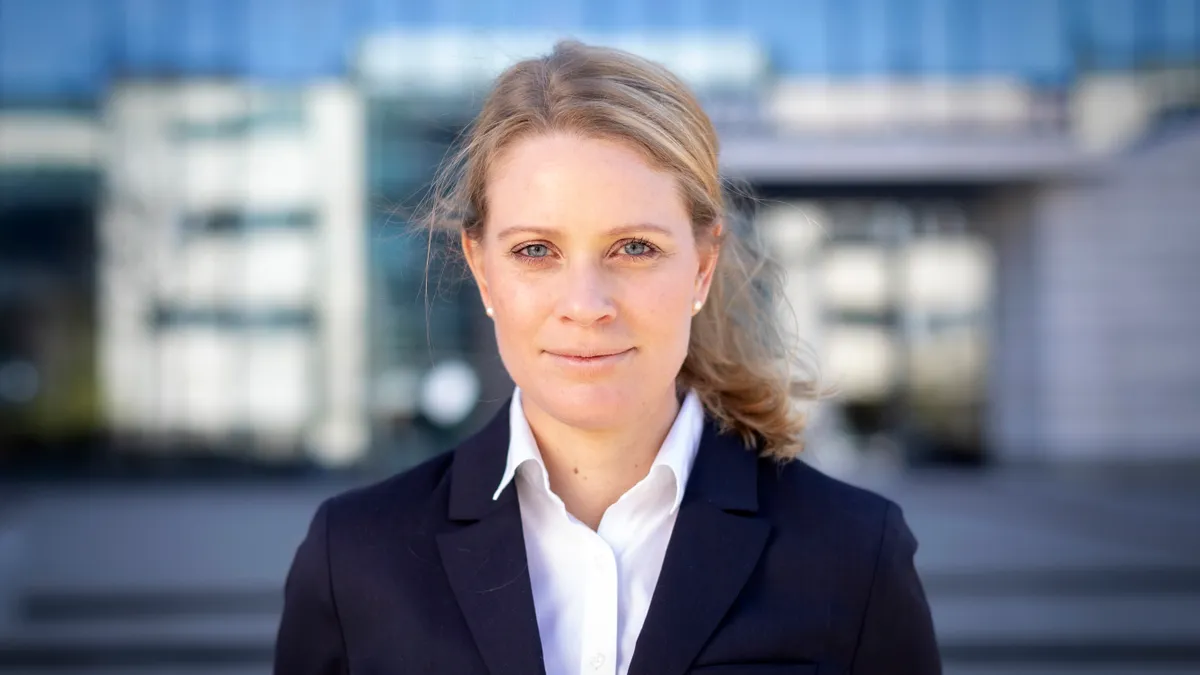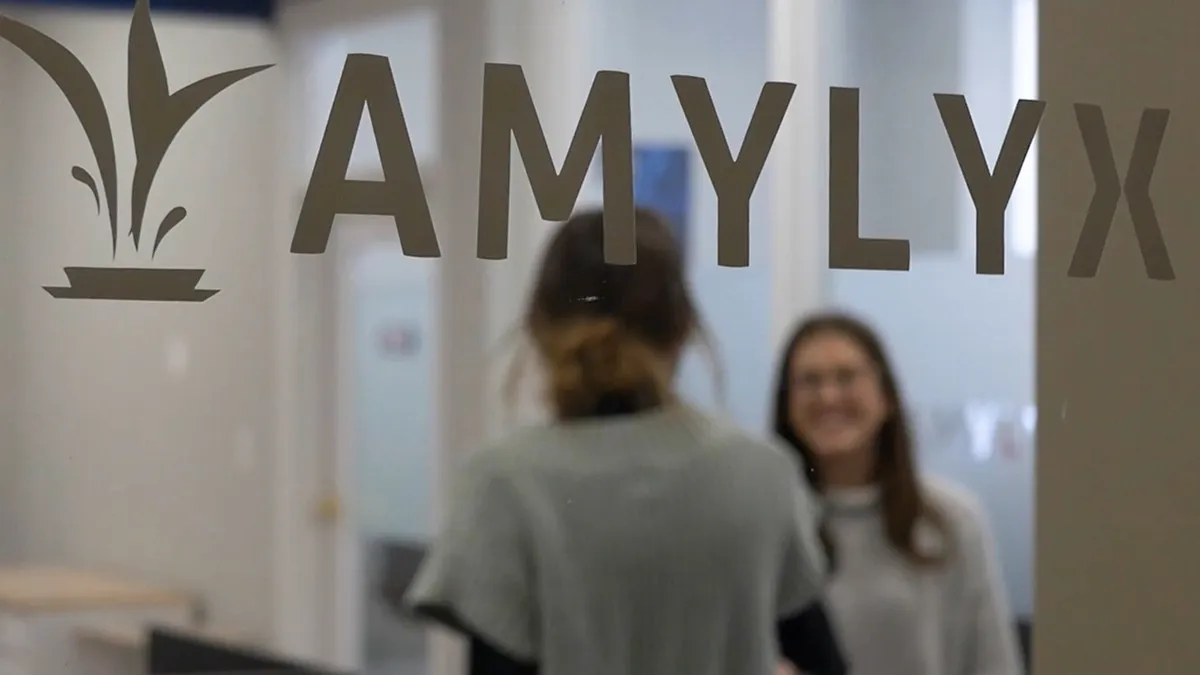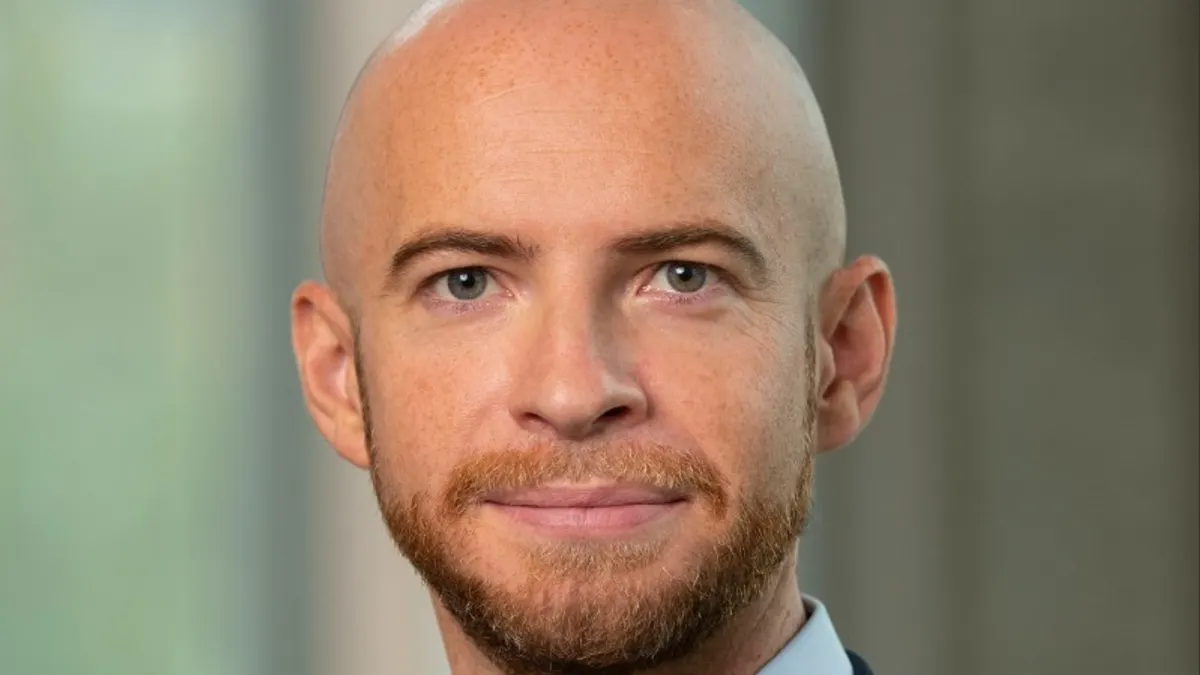Some people run for the fun of it. Others run for fitness, the joy of competition, or the pleasure of being outside. Evelina Vågesjö runs for all of that — and for Ilya Pharma.
“I always say that I run and try to be healthy and in good shape to be smarter at work,” she said.
A part of her might be joking, but there’s another part of her that’s definitely not. Vågesjö is in perpetual motion, both literally and figuratively. She said she’s constantly active — moving, thinking, working, creating — and channeling that energy into her work to make people’s lives better.
As co-founder and CEO of the Swedish clinical-stage immunotherapy company Ilya Pharma, Vågesjö is driven by the relentless determination to bring her scientific discoveries into the real world to help patients. In fact, “determined” is a good word to describe Vågesjö, who started the company in 2016 based on research she developed working on her Ph.D. in physiology at Uppsala University in Sweden.
Ilya Pharma’s technology uses lactic acid bacteria to act as “bioreactors” to produce chemokines and other immunoactive endogenous proteins to speed healing and stimulate tissue regeneration.
"I want to find the fastest way to proof of concept or the fastest way to approval of the product. That drives me."

Evelina Vågesjö
Co-founder and CEO, Ilya Pharma
Its lead candidate, ILP100-Topical, is a first-in-class immunotherapy designed to treat surgical wounds in patients with prediabetes, diabetes and obesity. In May, the FDA cleared an investigational new drug application for ILP100-Topical, and the company is launching an adaptive phase 2 study, designed as a pivotal trial, with the primary endpoint of complication-free healing.
It's also in the midst of a phase 2a study of ILP100-Topical in patients with diabetes and chronic wounds, which is funded by the European Innovation Council Accelerator grant program
Finally, the company is developing ILP100-Oral, which aims to treat cancer patients who develop colitis following treatment with checkpoint inhibitors and plans to start its first clinical trials in patients by late 2023 or early 2024.
In addition to its drug development work, Ilya is also working to improve the cell- and gene therapy supply chain, “where a bottleneck for late-stage phase 3 and commercial manufacturing capabilities is the reality,” Vågesjö said via email. For instance, it acquired one of its key suppliers, Nordic Bioanalysis AB, in 2021, and “developed a business- and investment plan for a new greenfielda site (or undeveloped land that can be used for commercial development) with capabilities of aseptic and non-aseptic manufacturing of bacteria as pharmaceuticals and gene therapy and is now evaluating different opportunities for financing and potential partnerships.”
Ilya’s work pays homage to the man that the company was named for: Ilya Mechnikov, a scientist born in what is now Ukraine, who won the Nobel Prize in 1908 for his work studying the immune system and espoused the benefits of lactic acid bacteria.
However, using bacteria the way Ilya Pharma is using it is still new. Vågesjö noted that at a recent industry conference where attendees were discussing different modalities for gene therapy, “bacteria was not mentioned once.”
“But I think it’s an up-and-coming field that’s right on the horizon,” she said. “That’s when you have to make yourself heard a little bit in a nice way, educate your peers on your special modality.” Vågesjö is also driven to demonstrate that her efforts can transfer from the lab to patients.
“If you’re very convinced about your data, and you think you can make a difference in any indication for any patient population, you should take your technology or drug candidate to proof of concept in patients,” she said. “I’m very determined to get the proof of concept, but also prove the value of this science that I’m convinced works and that I’m convinced will help patients.”
On the move
Vågesjö has always been busy, curious and impatient. She grew up playing soccer and competing in dressage, a kind of horseback riding where the horses are trained in precise, almost dance-like, movements.
This quest to stay active followed her into academia. In addition to her Ph.D. in physiology, she earned a Bachelor of Science in management control systems from Uppsala University; Master of Science in biomedicine from Uppsala University and a Master of Business Administration from the Edinburgh Business School at Heriot-Watt University in Edinburgh.
She was one of the winners of Innovators Under 35 Europe from MIT Technology Review 2019; was on the Medicine Maker Power List for Advanced Therapies 2021; and serves on the board at the Norwegian company Lytix Biopharma.
“I’ve always had that very full calendar and lived a very active life, and that’s how I like it,” she said.
Even when she’s not working, Vågesjö is on the move. She has a puppy who runs with her — “Well, I run with him,” she corrected herself — and she often spends time outdoors, which she says is “very Scandinavian.”
“I live in the countryside, I love being outside,” she said. “I love running in the forest, walking in the forest, and I get a lot of energy from being outside.”
She also feeds off the enthusiasm of people around her.
“I get energy from strategic discussions, whether it’s business or IP or clinical strategy,” and solving complex problems with “super-smart peers,” she said.
It’s no surprise that someone who’s always busy and on the go would also be a bit impatient.
“I always liked school, always liked to learn, but I also realized I was extremely impatient as a kid,” she said. For Vågesjö, this can be especially tricky in the pharmaceutical industry, which tends to be slow-moving in many of its long-established norms.
“I want to find the fastest way to proof of concept or the fastest way to approval of the product. That drives me,” she said.
That’s also why as a leader she has prioritized the science in the company’s actions and decision making, always thinking “about how the product actually works in the body, on the immune cells.”
She wants to set that example for her team, too.
“I know that I have to be sort of a role model in my leadership as well. But I think I have prioritized we should always look at data and we should never be afraid to follow the science,” she said. “When you have something that’s a new modality in cell and gene therapy you have to always think about the science in every decision.”



















